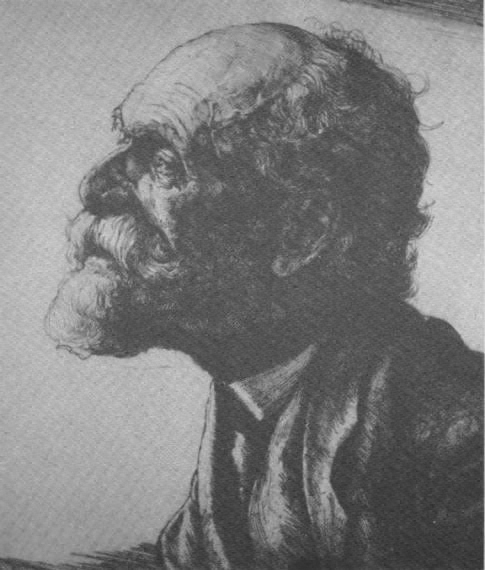Ernst Marcus (philosopher) on:
[Wikipedia]
[Google]
[Amazon]
 Ernst Moses Marcus (3 September 3, 1856,
Ernst Moses Marcus (3 September 3, 1856,
Theorie einer natuerlichen Magie: Gegründet auf Kants Weltlehre
' (1924) Munich: Ernst Reinhardt. * ''Kritik des Aufbaus der speziellen Relativitaetstheorie'' (1926) * ''Die Zeit und Raumlehre Kants'' (1927) His papers are held by the
Kamen
Kamen () is a town in North Rhine-Westphalia, Germany, in the district Unna.
Geography
Kamen is situated at the east end of the Ruhr area, approximately 10 km south-west of Hamm and 25 km north-east of Dortmund.
Neighbouring cities ...
– 30 October, 1928 Essen
Essen (; Latin: ''Assindia'') is the central and, after Dortmund, second-largest city of the Ruhr, the largest urban area in Germany. Its population of makes it the fourth-largest city of North Rhine-Westphalia after Cologne, Düsseldorf and D ...
) was a German
German(s) may refer to:
* Germany (of or related to)
** Germania (historical use)
* Germans, citizens of Germany, people of German ancestry, or native speakers of the German language
** For citizens of Germany, see also German nationality law
**Ge ...
lawyer
A lawyer is a person who practices law. The role of a lawyer varies greatly across different legal jurisdictions. A lawyer can be classified as an advocate, attorney, barrister, canon lawyer, civil law notary, counsel, counselor, solic ...
and philosopher
A philosopher is a person who practices or investigates philosophy. The term ''philosopher'' comes from the grc, φιλόσοφος, , translit=philosophos, meaning 'lover of wisdom'. The coining of the term has been attributed to the Greek th ...
. He developed a theory of aether based on Immanuel Kant
Immanuel Kant (, , ; 22 April 1724 – 12 February 1804) was a German philosopher and one of the central Enlightenment thinkers. Born in Königsberg, Kant's comprehensive and systematic works in epistemology, metaphysics, ethics, and ...
's posthumous work '' Opus Postumum'', however sharply disagreeing with Erich Adickes
Erich Adickes (29 June 1866, in Lesum – 8 July 1928, in Tübingen), was a German philosopher who wrote many important works on Immanuel Kant (1724–1804) and the Kantian philosophy. Adickes was a critical empiricist (moderate Kantian).
Adick ...
interpretation. He used this to mount a criticism of Albert Einstein
Albert Einstein ( ; ; 14 March 1879 – 18 April 1955) was a German-born theoretical physicist, widely acknowledged to be one of the greatest and most influential physicists of all time. Einstein is best known for developing the theory ...
's theory of relativity
The theory of relativity usually encompasses two interrelated theories by Albert Einstein: special relativity and general relativity, proposed and published in 1905 and 1915, respectively. Special relativity applies to all physical phenomena in ...
. He was a major influence on Salomo Friedlaender
Salomo Friedlaender (4 May 1871 – 9 September 1946) was a German-Jewish philosopher, poet, satirist and author of grotesque and fantastic literature. He published his literary work under the pseudonym Mynona, which is the German word for "a ...
.
Ernst was the son of Robert Ruben Marcus and Berta Marcus.
Marcus studied law in Bonn
The federal city of Bonn ( lat, Bonna) is a city on the banks of the Rhine in the German state of North Rhine-Westphalia, with a population of over 300,000. About south-southeast of Cologne, Bonn is in the southernmost part of the Rhine-Ruhr r ...
and Berlin
Berlin ( , ) is the capital and largest city of Germany by both area and population. Its 3.7 million inhabitants make it the European Union's most populous city, according to population within city limits. One of Germany's sixteen constitue ...
. Whilst working as an Assessor in 1889 he developed an interest in philosophy
Philosophy (from , ) is the systematized study of general and fundamental questions, such as those about existence, reason, knowledge, values, mind, and language. Such questions are often posed as problems to be studied or resolved. Some ...
. In 1890 he was appointed as a judge in Essen
Essen (; Latin: ''Assindia'') is the central and, after Dortmund, second-largest city of the Ruhr, the largest urban area in Germany. Its population of makes it the fourth-largest city of North Rhine-Westphalia after Cologne, Düsseldorf and D ...
. In 1893 he married Berta Auerbach with whom he had three children.
In 1899 he started regular meetings with Salomo Friedlaender who admired his theses and became a firm supporter of him. Friedlaender referred to him by epithet the "Krupp
The Krupp family (see pronunciation), a prominent 400-year-old German dynasty from Essen, is notable for its production of steel, artillery, ammunition and other armaments. The family business, known as Friedrich Krupp AG (Friedrich Krup ...
of logic".
Works
* ''Kants Revolutionsprinzip'' (1902) * ''Das Erkenntnisproblem'' (1905) * ''Die Beweisfuehrung in der Kritik der reinen Vernunft'' (1914) * ''Kants Weltgebaeude'' (1917) * ''Das Problem der Excentrischen Empfindung und seine Losung'' (1918) Berlin: Verlag der Sturm *Theorie einer natuerlichen Magie: Gegründet auf Kants Weltlehre
' (1924) Munich: Ernst Reinhardt. * ''Kritik des Aufbaus der speziellen Relativitaetstheorie'' (1926) * ''Die Zeit und Raumlehre Kants'' (1927) His papers are held by the
Leo Baeck Institute
The Leo Baeck Institute, established in 1955, is an international research institute with centres in New York City, London, and Jerusalem that are devoted to the study of the history and culture of German-speaking Jewry. Baeck was its first intern ...
, New York.
References
{{DEFAULTSORT:Marcus, Ernst 1856 births 1928 deaths